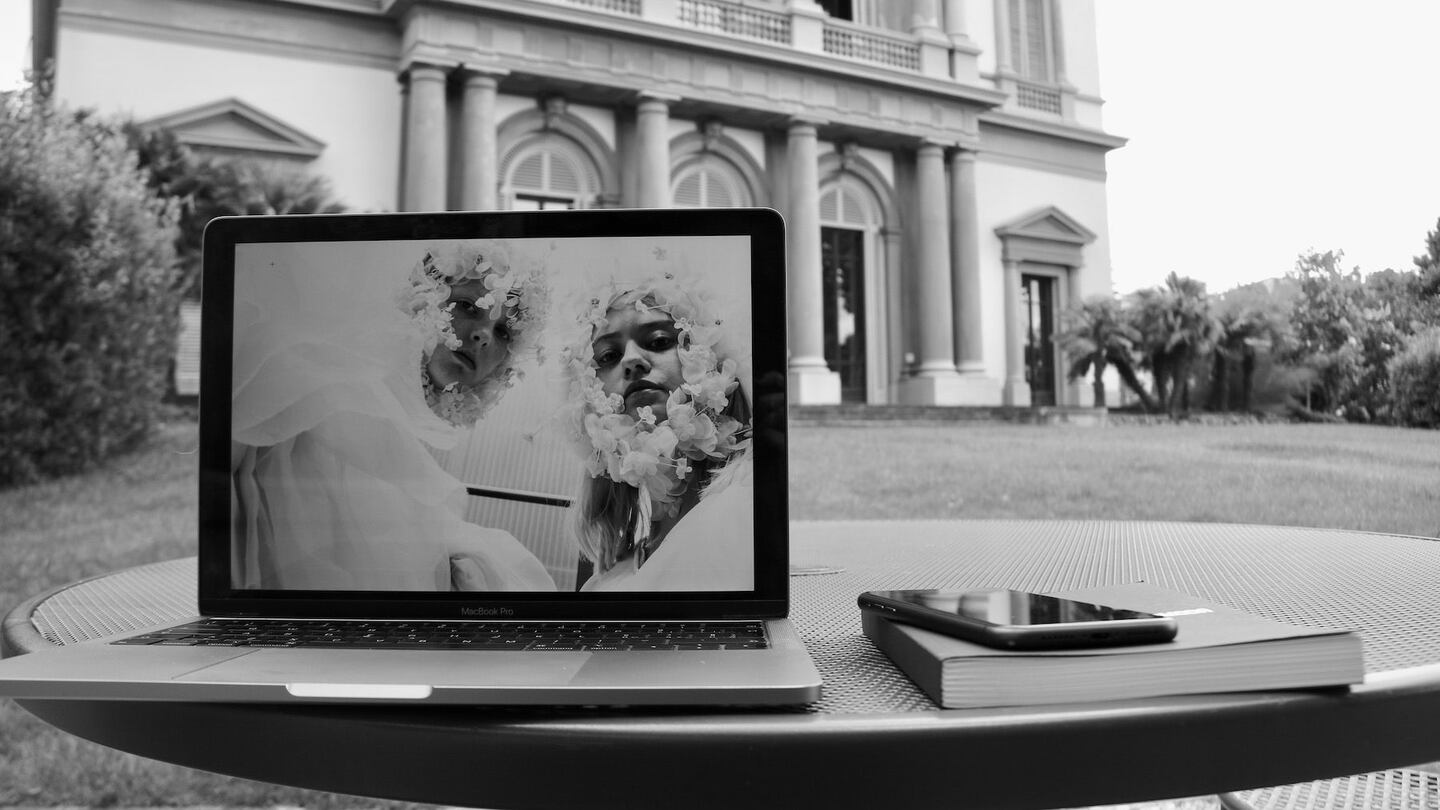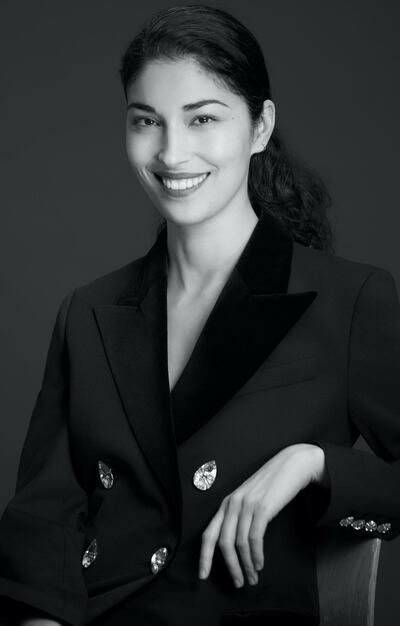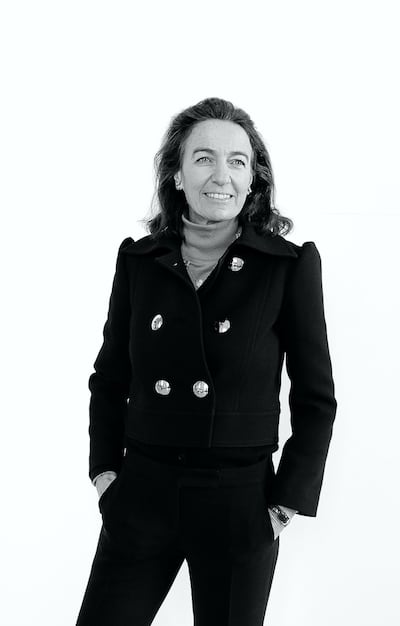
The Business of Fashion
Agenda-setting intelligence, analysis and advice for the global fashion community.

Agenda-setting intelligence, analysis and advice for the global fashion community.

FLORENCE, Italy — According to UNESCO, the coronavirus pandemic has disrupted learning for 87 percent of students worldwide. While the global education system adjusts to on-going safety measures and travel restrictions in place to stem the spread of Covid-19, fashion schools are among those adapting their offerings to assist and support the next generation of industry professionals.
Alongside their recently launched €2 million scholarship fund, Polimoda has created their first fully digitised e-learning courses, consisting in live one-to-one lessons with professors to maintain the school's human-centric nature as well as blending digital interaction with online learning materials and more traditional classroom methods. Diminishing the disruption to students' learning, the courses also offer the technological skills and independent learning style expected of new graduates in an increasingly digitised industry.
Four of the e-learning offerings are short courses, lasting 28 hours each, on the topics of collection merchandising, digital styling, international fashion business and personal branding. Running from July to September, these classes offer a direct line to the course mentor Caroline Issa, Tank magazine's chief executive and fashion director. Issa joined the masthead aged 25 and has launched collaborations and lines with the likes of LK Bennett, Nordstrom and J.Crew and works with major luxury brands like Cartier and Salvatore Ferragamo in image making.
Another four digital courses, lasting 80 hours each, cover fashion brand management, fashion design, fashion merchandising and buying, and sustainable fashion. Encompassing both theory and practical sessions, with two editions starting in July and September, these courses are mentored by Laudomia Pucci, deputy chairman and image director at ready-to-wear brand Emilio Pucci. Steeped in a Florentine heritage, the LVMH-owned brand boasts a strong creative identity embodied by its archive of more than 20,000 prints.
Polimoda has also sought expertise internally for its 300-hour long e-learning courses on Fashion Design and Fashion Business, to be led by Massimiliano Giornetti, the head of the fashion design department, previously creative director of Salvatore Ferragamo, and Niccolò Sbaraglia, head of the fashion business department, starting in October 2020.
Now, BoF sits down with Caroline Issa and Laudomia Pucci to hear more about their e-learning courses and mentorship plans for Polimoda’s student body.

Caroline Issa, chief executive and fashion director of Tank magazine | Source: Courtesy
Caroline Issa, Chief Executive and Fashion Director, Tank Magazine
The idea of accessibility through digital education coming to these venerable, traditional fashion institutions offers students a truly globalised opportunity to access fashion experts.
Why did you choose to become a mentor at Polimoda?
There is heritage, glamour and storytelling around Italian fashion. These courses are about talking to students who are interested in the art of fashion, the art of craft, and Polimoda is at the top of the game within that Italian craft story. The school has incredible graduates who change the face of fashion, rooted in artisanship and the authentic European tradition of making things of value.
I am excited to be a part of how they are going to explore fashion education on a global, digital level with the infrastructure and reputation Polimoda has. I can mentor these courses while sitting in London, to give an outsider view on how I think about Italian craft. I can elevate a global perspective attached to what I know will be rigorous training.
What will you cover in your e-learning courses?
Collection merchandising, digital styling, international fashion business, and personal branding are the four remits that we’re looking at. I'm umbrella mentoring these four courses, so I will do a couple of hours as an introduction to induct the students into an education that will look to the future of fashion while embedded in Italian heritage.
It's a specific time to be developing these courses because there's so many questions that didn't exist before the pandemic. Our traditional way of working is out the window. Sies Marjan, toast of the town, closed after five years despite having billionaire backers. None of it makes sense. So how do we make our industry work equitably for all those in it?
I’m hoping to pose a lot of questions and give the students inspiration for what the industry could look like based on principles that are ethical, sustainable — what we're all striving for. These students are going to be redefining what our fashion industry will look like.
What can students get out of a digital learning format?
The idea of accessibility through digital education coming to these venerable, traditional fashion institutions offers students from Mongolia to Sudan to Japan to Singapore — wherever in the world — a truly globalised opportunity to access fashion experts.
It is exciting that institutions like Polimoda will open up their doors to those interested in the business of fashion from all over the world, who might not necessarily be able to do it physically — and for a much smaller fee than a normal semester in Florence, as well as the cost of living and moving to Italy.
How will your courses reflect the changing skill sets of working in fashion today?
The pandemic and remote working has brought up a lot of new skillsets that we're having to deal with, but I think all of those are underpinned with traditional skills of storytelling. Be creative and innovative in the way that you approach your marketing, and a lot of the rules continue to exist. It’s just how you execute them might be very different.
An openness to learn from fellow students is important, coming with questions about how the industry is changing and where they want to be within that.
There's also something around the art of being flexible and learning not to be a slave to the algorithm, which means having to tell effective stories in order to engage. In Europe, we don’t have anything like WeChat that patches together an integrated platform for storytelling and commerce. So, how do we think the future for Europe is going to play out? I think that's going to require a lot of new ways of thinking about storytelling.
How can students get the most out of your courses?
Students should bring a real curiosity. I would love to see them asking more questions than anything else. I think a real openness to learn from their fellow students from around the world is important and coming to this course with questions around how the industry is changing and where they want to be within that.
By the end of these courses, while we might not be able to solve everything, I hope we have interesting discussions and debate around the potential solutions for the biggest problems our industry is facing today.

Laudomia Pucci, deputy chairman and image director at Emilio Pucci | Source: Courtesy
Laudomia Pucci, Deputy Chairman and Image Director, Emilio Pucci
We teach you our ways of doing things, our manufacturing, our "made in" and why quality is important […] But always ask questions, not just say, "Oh, it's done like that."
Why did you choose to become a mentor at Polimoda?
Polimoda is an old friend of mine. The school was the brainchild of my father, Emilio Pucci, and the former executive vice president emeritus at New York’s FIT, Shirley Goodman, in 1986, so it's very close to my heart. Today, I sit on the board and count Linda [Loppa] and Danilo [Venturi] as friends.
Polimoda asked me to do a masters course a couple of years back and I didn't realise how tough it was to teach, but I really enjoyed it because of the conversations with the younger generation. They ask “why” and “what,” which I think is healthy for those of us who have been in the industry for so long. So, during the Covid shutdown this spring, when Danilo asked me if I would be open to becoming a mentor, I said, "Of course."
Last year, the Italian luxury goods association Altagamma reported 236,000 hands will be missing in the industry in the next five years. I believe it's our duty to educate talent to go into those jobs. I look at it as an opportunity and I think Polimoda is exceptional in offering that opportunity.
What will you cover in your e-learning courses?
We should be touching on sustainability, on fashion merchandising and buying, fashion design and fashion brand management. It’s a pretty vast curriculum. Now, we know that sustainability is a word that everybody seems to use today and it's extraordinary how little we really know on the subject, so I think that's important. We will also cover manufacturing in Italy, how that is socially sustainable, and how we can use less, better.
I will share what I have done in my life, what I have brought to the brands, what I have taken from fashion, and where I see these large sectors of fashion going. But I want to know specifically how I can help these students. I'd also like to hear what they have to say because it's not supposed to be a one-sided conversation.
What is unique about the creative education in Florence?
Italy is like a museum of nature, of colours, of architecture and art, and Florence is an even more concentrated version of that. However, just absorbing Florence’s culture and our way of living is a passive way of learning.
I want to know how I can help these students. I'd like to hear what they have to say — it's not supposed to be a one-sided conversation.
If we teach you our ways of doing things, our manufacturing, our "made in" and why quality is important, from the raw materials to how the eye can see things, that is the active way of learning. It gives the opportunity of doing things with your hands.
How can students get the most out of your courses?
The course goes on for about two months, so students will need to concentrate and they should know what they want from me. You need to know how to do things yourself and with your hands, so you are then able to ask why — why that price? Why that market? Why that length? Why that colour? Why at that time for production? Why that merger? All these whys are what I think students need to have a hands-on approach.
Always ask another question, not just say, "Oh, it's done like that." Or, "Who cares, if somebody else will take care of it?" No, it's your product so you are responsible for it. It's your story, so you have to know the ins and the outs.
This is a sponsored feature paid for by Polimoda as part of a BoF Education partnership. To learn more about Polimoda, please click here.
Related Articles:
[ Polimoda’s Scholarship Plans for Fashion’s Future TalentOpens in new window ]
From analysis of the global fashion and beauty industries to career and personal advice, BoF’s founder and CEO, Imran Amed, will be answering your questions on Sunday, February 18, 2024 during London Fashion Week.
The State of Fashion 2024 breaks down the 10 themes that will define the industry in the year ahead.
Imran Amed reviews the most important fashion stories of the year and shares his predictions on what this means for the industry in 2024.
After three days of inspiring talks, guests closed out BoF’s gathering for big thinkers with a black tie gala followed by an intimate performance from Rita Ora — guest starring Billy Porter.